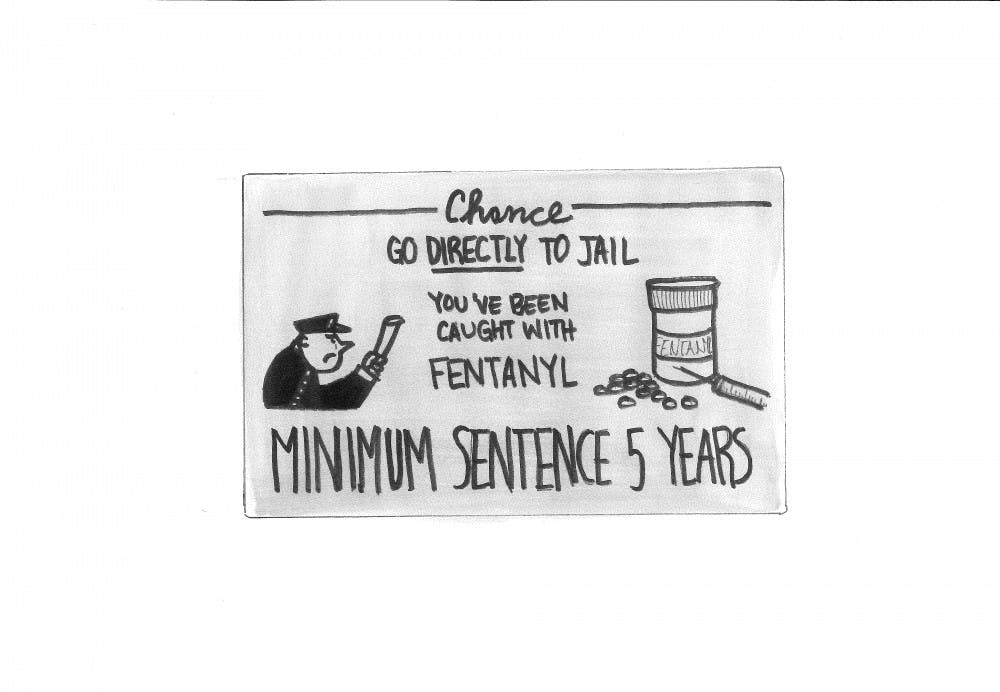Sen. Jim Merritt, R-Indianapolis, is proposing mandatory minimum sentences on people selling Fentanyl-laced drugs in effort to curb the opioid epidemic.
However, time and time again, mandatory minimums have caused more harm than good, and this time is no different.
A mandatory minimum is a legislated sentence given to people who commit certain crimes, regardless of mitigating factors. While it initially sounds well-intentioned, it harms addicts more than dealers.
While it would be great to assume that legislation like this targets dealers and not people suffering from opioid addiction, it’s impossible for legislation to decide who has “intent to deal” and who is just in possession.
This means that the state and police have the discretion to decide if someone in possession is a dealer of Fentanyl-laced drugs or if they are an addict. The state could be rounding up people who are addicted, and not dealers.
Since 1980, when mandatory minimums were first introduced for drug-related offenses, the federal prison system has grown by nearly 800 percent.
Mass incarceration is already a rampant issue, and mandatory minimums are partially to thank for that.
When former President Reagan signed the Anti-Drug Abuse Act of 1986, mandatory minimums disproportionately affected African Americans addicted to crack cocaine. Urban communities were eviscerated, and the crack cocaine problem has raged to this day.
Mandatory minimums for Fentanyl-laced drugs will devastate rural communities just like they did urban communities.
Mandatory minimums are a waste of time and effort when funding and legislation could be working toward harm reduction instead of mass incarceration.
Last year, roughly 64,000 people died from drug overdoses, and overdoses are now the leading cause of death in Americans under 50.
Instead of offering treatment programs, safe needle disposal and exchange or support from medical professionals, Indiana is offering an extended prison sentence.
There are currently 19 approved treatment programs people in Indiana addicted to opioids. However, many still say they have to “drive long distances” in order to receive treatment.
This means low-income rural addicts have limited access to these facilities, and they are hurt the most since seeking help is intangible.
Recently, Lawrence County — just south of Monroe County — rescinded its safe needle exchange program.
Mandatory minimums target addicts. If they could viably target dealers, it would be a great movement for bettering the opioid crisis.
However, mandatory minimums merely increase incarceration, where mental health and addiction treatments are far and few between.
After release, opioid users are far more likely to use the drug again, in levels their bodies cannot tolerate, often resulting in overdose.
Mandatory minimums, then, will indirectly increase overdose, especially if they create convicts prone to recidivism.
Heroin dealers who use Fentanyl in their drugs are devoid of competent thought for the people they deal to. If Indiana's opioid policy could get the people dealing the drugs off the streets instead of the people addicted to them, our society would be safer, and our loved ones wouldn’t be at risk.
However, mandatory minimums have never targeted the dealers, and they never will.




